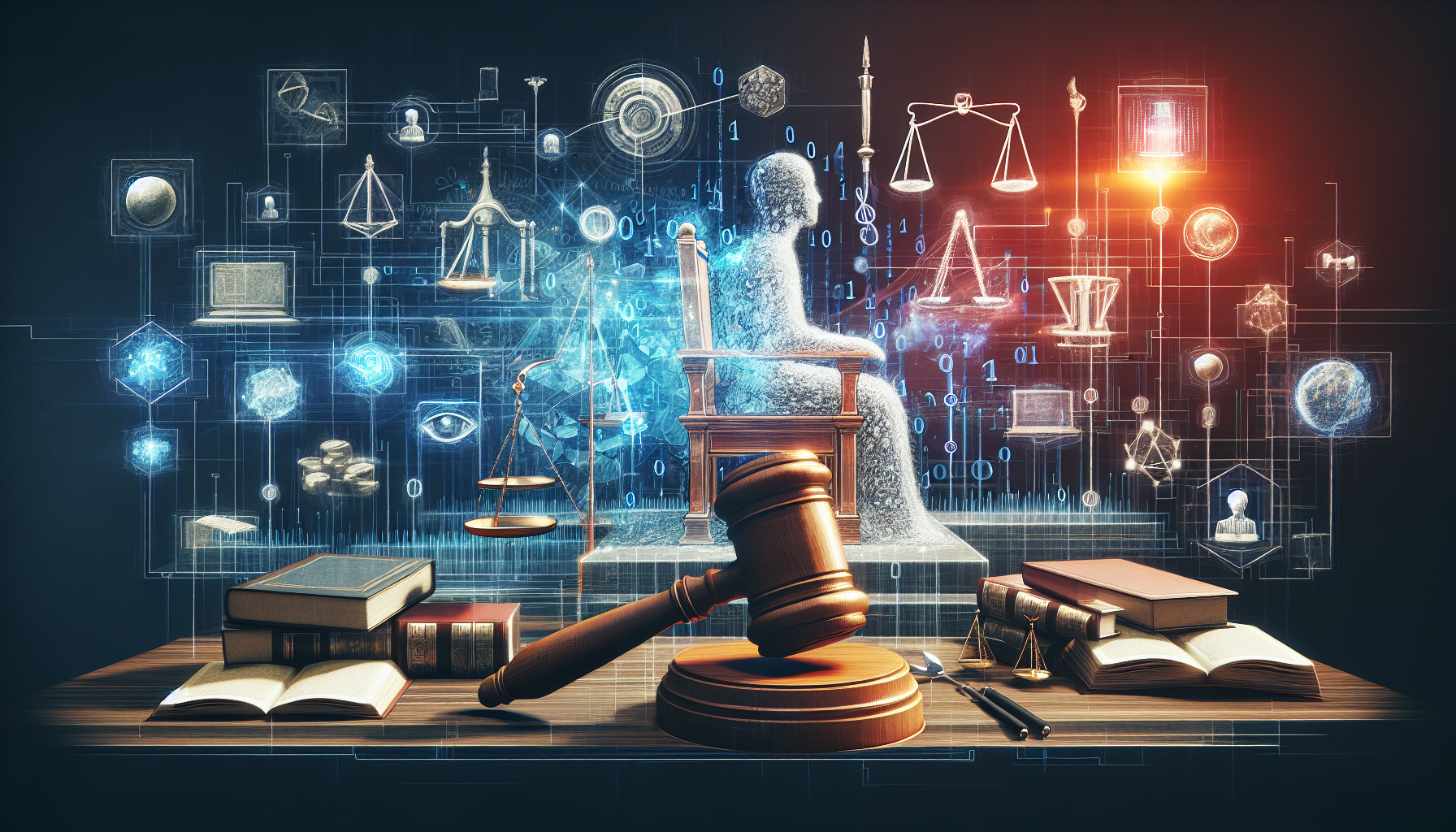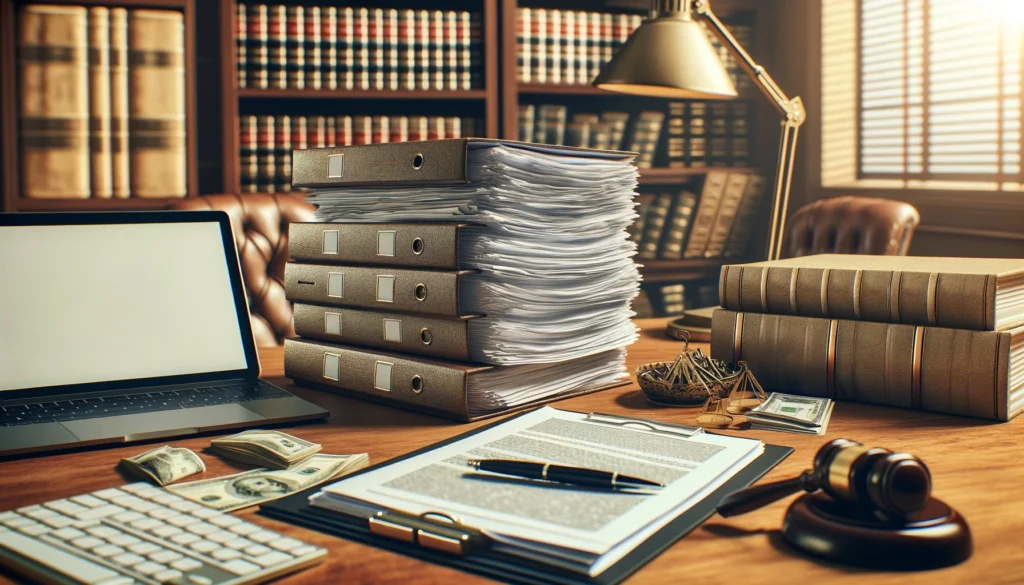
Setting the Stage: Revolutionizing Paralegal Work
The legal profession is at the cusp of transformation, driven by technological advances that are augmenting traditional roles and tasks. As technology integrates further into legal work, the potential for Artificial Intelligence (AI) to revolutionize paralegal duties becomes evident. From researching case laws to drafting documents, AI and Large Language Models (LLMs) like ChatGPT can streamline routine tasks, enhancing productivity and precision. This not only frees up valuable time for paralegals to focus on strategic aspects but also elevates the overall efficiency of legal operations.
One area ripe for innovation is the preparation of injury impact statements—essential documents in injury litigation that can benefit immensely from AI’s capabilities.
Understanding Injury Impact Statements
Injury impact statements are pivotal in legal proceedings, particularly in personal injury and workers’ compensation cases. These statements articulate the physical, emotional, and financial repercussions of an injury on the plaintiff’s life. A well-crafted impact statement can significantly influence the outcome of a case by clearly conveying the extent of the damage and its long-term effects.
Traditionally, paralegals gather details through interviews, medical records, and personal accounts to create these statements. This process can be labor-intensive and time-consuming, often requiring meticulous attention to detail. However, with the advent of AI-enhanced methods, this task can be significantly streamlined.
AI tools, specifically ChatGPT, can assist in synthesizing vast amounts of data into coherent, compelling narratives, thus redefining the approach to crafting injury impact statements.
Also read:
The Power of ChatGPT: A New Ally for Paralegals
ChatGPT, developed by OpenAI, is an advanced language model that can understand and generate human-like text based on the input it receives. Its capabilities extend beyond simple text generation to more complex applications like drafting legal documents, conducting preliminary research, and even composing injury impact statements.
By leveraging ChatGPT, paralegals can generate detailed and nuanced injury impact statements quickly and accurately. Some key benefits include:
- Efficiency: ChatGPT can process and synthesize information faster than manual methods, reducing the time spent on document preparation.
- Consistency: The AI ensures uniformity in style and structure across multiple documents, which is crucial in legal proceedings.
- Scalability: With AI, handling multiple cases simultaneously becomes more manageable, thus increasing overall productivity.
- Detail-Oriented: AI can identify and highlight key points and themes from extensive data, ensuring comprehensive and thorough statements.
These substantial advantages underscore the transformative potential of AI in legal work, particularly for paralegals tasked with producing detailed injury impact statements. Understanding how to harness this power begins with crafting the perfect prompt.
Also read:
Crafting the Perfect Prompt: The Key to Precision
The effectiveness of ChatGPT hinges on the clarity and specificity of the prompts it receives. Well-crafted prompts guide the AI to generate relevant and precise content, which is crucial for legal documentation.
Here are some examples of nuanced and effective prompts for generating injury impact statements:
- General Prompt: “Describe the physical, emotional, and financial impact of a severe car accident on a 35-year-old male, including details from medical records and personal testimony.”
- Specific Prompt: “Summarize the physical limitations and emotional distress experienced by a 45-year-old female plaintiff following a workplace injury, referencing medical documents and counseling notes.”
- Comprehensive Prompt: “Draft an injury impact statement for a 28-year-old plaintiff who suffered a spinal injury in a motorcycle accident, incorporating medical data, psychological evaluations, and financial loss details.”
These prompts exemplify the need for specificity and context. A nuanced prompt ensures that the AI generates detailed, relevant, and on-point content, which is critical for producing accurate injury impact statements. The next step involves structuring and inputting data into ChatGPT.
Also read:
Step-by-Step Guide: From Data to Detailed Statements
Transforming raw data into a comprehensive injury impact statement using ChatGPT follows a structured approach. Here’s a step-by-step guide:
- Data Collection: Gather all relevant information, including medical records, psychological evaluations, personal testimonies, and financial records. Ensure the data is comprehensive and verifiable.
- Data Structuring: Organize the collected data into categories such as physical impact, emotional impact, and financial impact. This structured approach helps in creating a coherent narrative.
- Crafting Prompts: Formulate specific prompts based on the structured data. For instance, “Using the attached medical records, describe the long-term physical limitations caused by a spinal injury.” Input these prompts into ChatGPT.
- Generating Content: Use ChatGPT to generate the injury impact statement. Review the output to ensure accuracy and completeness.
- Editing and Refining: Edit the AI-generated content for clarity, coherence, and relevance. Ensure all critical details are accurately represented.
This systematic approach ensures that the injury impact statements produced using ChatGPT are detailed, accurate, and reflective of the true impact on the plaintiff’s life.
However, while AI can significantly ease the process, it is crucial to validate the outputs for accuracy.
Also read:
Ensuring Accuracy: Validating AI-Generated Content
AI-generated content must be rigorously reviewed to maintain its integrity and reliability, especially in legal contexts. Here are some techniques to ensure accuracy:
- Cross-Referencing: Compare the AI-generated statement with the original data sources to verify factual accuracy.
- Peer Review: Have another paralegal or attorney review the statement for consistency and correctness.
- Editing: Make necessary amendments to rectify any discrepancies or omissions in the AI-generated content.
Maintaining the reliability of the statements is paramount, underscoring the importance of human oversight in AI-assisted legal work. Efficiently verifying and editing AI-generated content not only ensures accuracy but also builds trust in AI tools.
Also read:
Time-Saving Techniques: Maximizing Efficiency
To fully capitalize on ChatGPT’s capabilities, paralegals can adopt several time-saving techniques:
- Batch Processing: Generate multiple statements at once by preparing batches of structured data and prompts.
- Template Use: Develop templates for commonly used prompts and data structures to speed up the input process.
- Automated Data Input: Utilize tools that automate data extraction and input into ChatGPT, minimizing manual entry errors and saving time.
Balancing speed with accuracy and thoroughness is crucial. By implementing these techniques, paralegals can efficiently generate high-quality injury impact statements without compromising on detail and precision.
Also read:
Ethical Considerations: Responsible Use of AI
While leveraging AI, it’s essential to uphold ethical standards. Ensuring confidentiality and responsible use of AI tools is paramount. Paralegals must navigate potential legal and ethical pitfalls, such as data privacy concerns and the unauthorized use of sensitive information. Adopting stringent ethical guidelines will safeguard the integrity of legal practice.
Also read:
Looking Ahead: The Future of AI in Legal Work
The continued advancement of AI technologies promises to further revolutionize the paralegal profession. As AI becomes more sophisticated, its impact on legal work will expand, offering even more robust tools for efficiency and accuracy.
Also read:
Final Thoughts: Embracing Technology, Enhancing Efficiency
In summary, AI tools like ChatGPT can profoundly enhance paralegal efficiency, particularly in tasks such as generating detailed injury impact statements. By embracing these technologies, paralegals can shift their focus to more strategic and complex aspects of legal work, driving overall productivity and effectiveness in their practice.


